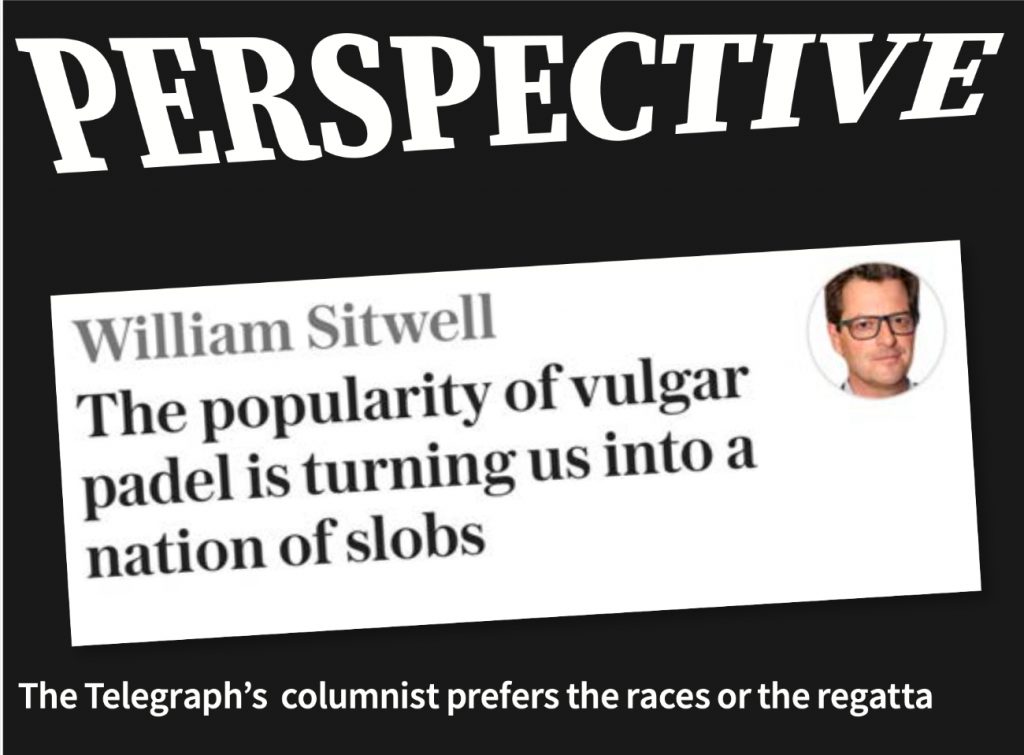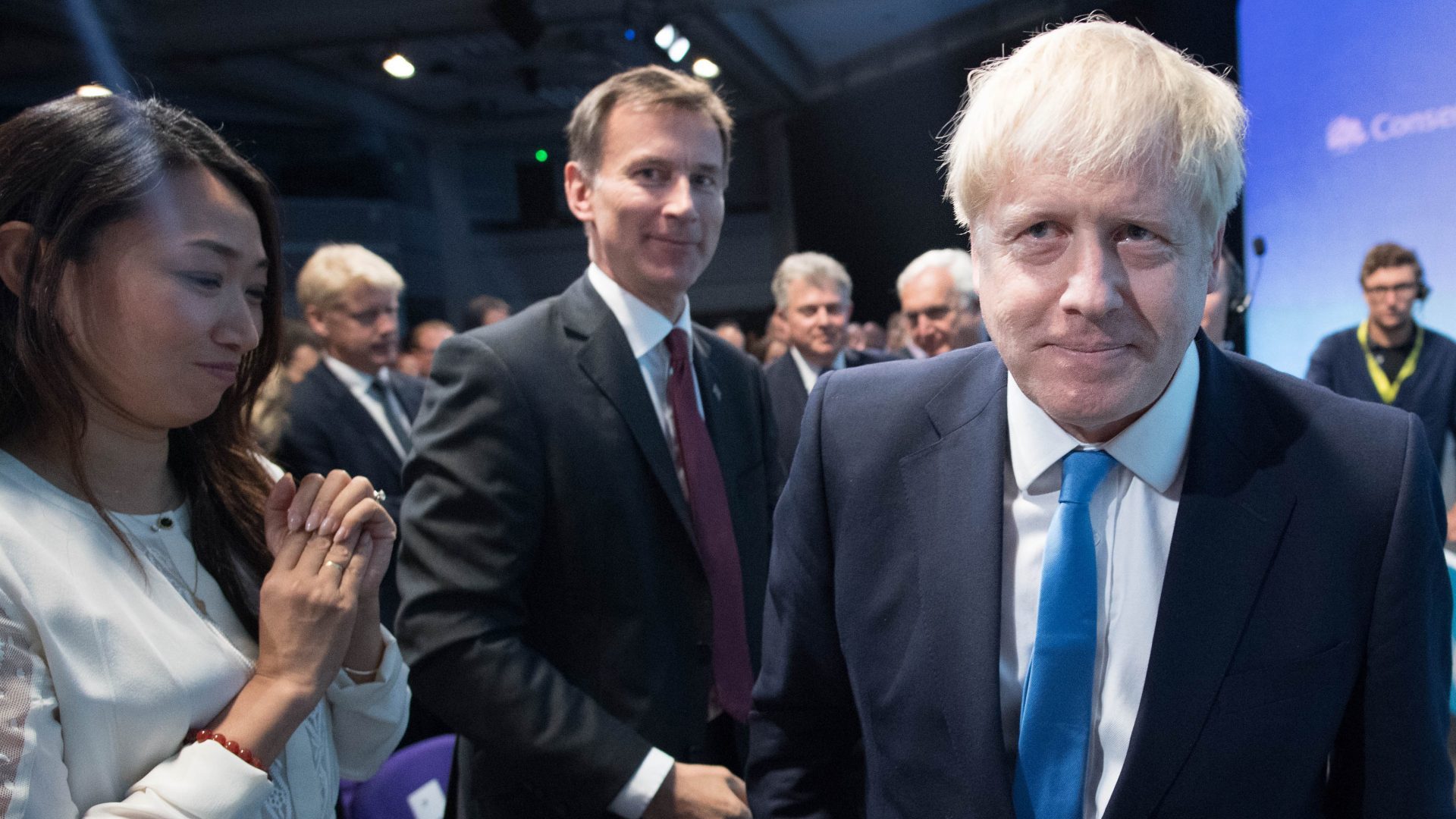Re: “The Tories are dead” (TNE #435). I trace the root of the Conservative Party’s decay (so ably chronicled in Matthew d’Ancona’s piece) to allowing the members to vote for their leader. Apart from David Cameron, I think it’s fair to say most of the subsequent choices have been either poor or disastrous.
Critical was the Faustian bargain Tory MPs made in allowing Boris Johnson to reach the last two, so going forward to the inevitable coronation from the membership. Tory MPs knew perfectly well that Johnson was without integrity, but allowed him to become leader anyway, for short-term electoral gain. Well, they got their reward, but reaped the long-term destruction of their party.
I presume it is now impossible for a “One Nation” candidate to become leader, given that the membership will invariably select the least electorally suitable candidate.
Martin Treacey
Superb piece. Puts me in mind of my old MP, Dominic Grieve, an intelligent, thoughtful, and incredibly decent man (whom I never voted for, but I would today). Such figures are now as far from today’s Conservative Party as the Earth is from the moon.
RSP Zatzen
Robert Jenrick will end up as Tory leader and do a deal with Nigel Farage, who will demand a very high price – he will want to be leader of a combined “Conservative and Reform Party”. I guess as the decades go by that may get shortened to simply “Conservative”, and then younger generations without first-hand memory of the merger may treat it as a continuation of the Conservative Party of old.
It will, of course, be very different, a bit like how Donald Trump’s Republicans are very different to Dwight D Eisenhower’s (or even George Bush’s). A revolutionary rather than evolutionary change.
David Roberts
Matthew d’Ancona’s obituary for the Tories is, I fear, premature. They are very much alive and as cruel, self-serving and misguided as always. The same policies. The same disgusting rhetoric.
They just call themselves the Labour Party these days.
Clive Foster
Nottingham, Notts

To celebrate, or not?
“The wrong way to celebrate VE Day” was a good and apt piece by Patience Wheatcroft (TNE #435). There is a difference between patriotism and nationalism which many fail to distinguish.
I’m tired of these over-the-top jingoistic celebrations marking VE Day. It’s part of looking backwards to a bygone “golden age” when Britain “ruled the waves”.
Of course defeating Nazism and fascism was the right thing to do (my parents came to Britain as small children – German Jewish refugees from Nazi Germany), but it’s time to move on. We are friends with Germany now and have been for many years. We desperately need a new relationship with the EU that lays the foundations for the new course this country will need to take in a rapidly changing world.
Katherine Eisner
Patience Wheatcroft deserves absolute praise. The painful and embarrassing union jack-adorned Mall last weekend was terrifying. Remember this was Victory in EUROPE Day. Where were the flags of our numerous allies and the countries that suffered under the yoke of abject nationalism?
More column centimetres for Patience, please.
Neil Davies
Brixham, Devon
I didn’t enjoy Patience Wheatcroft’s piece. The entire article had this running theme of shame for the idea that people would be happy to celebrate a monumental day of achievement for the allied nations. What is branded as “zealous patriotism” adds up to face painting and waving a flag.
The author rightly highlights the solemn experiences of the soldiers in both world wars and beyond, and we do in fact have a national day of mourning; Remembrance Day and Remembrance Sunday are a time of solemn reflection and mourning for the countless lives that have been lost in conflict.
VE Day is important specifically because it is a celebration. It celebrates the end of six years of conflict that engulfed Europe and beyond, which culminated in the defeat of an evil fascist government and its conquest and subjugation of millions of people. VE Day is a pinnacle achievement that denotes the hardship and sacrifice that came before it.
The current political climate isn’t lost on any of us. The increase in support for Reform is concerning, the clear evidence that Britain is not great but is in fact in a state of managed decline isn’t lost on anyone. VE Day is one of the few days of legitimate pride I believe we can feel as a country for doing something unequivocally good, for having something to actually celebrate and bring us together as a country.
Antony Lee
Labour’s hollow victory
Re: “A complete unknown”, by James Ball on Morgan McSweeney. The election Ming Vase strategy suggested there was a grand plan to protect. We now know there never was any plan. The government is as clueless as Liz Truss’s government. That’s one hell of an achievement.
Guy Masters
If anything, blame should have been levelled at Morgan McSweeney last July for the amazing lack of depth there was in Labour’s “victory”. It took years for the combined might of the Tories to make themselves unelectable. McSweeney has done it for Labour on his own in little time at all.
Steve Buch
Choosing your time
The most inappropriate feature of Sonia Sodha’s “Assisted dying: a price too high” (TNE #435) was the emphasis she placed on her survey of SEND 16-year-olds. I know from personal experience that when you are in your 80s, your perspectives change, even if you have made it so far without any terminal or even threatening condition.
Much more germane, then, is the experience related by Esther McVey MP of a visit to a care home in her constituency. While admitting to being instinctively drawn to the “slippery-slope” side, to her credit she described how, in a discussion of the issue among the 50 or so residents, the question was put, “When your time comes, would you rather it came in a setting, in company, at a time, and in a manner of your choosing, or to just let nature take its course?”
How many takers were there for option B? One.
Charles Baily
Bedford, Beds
Assisted dying is for people who are suffering in a way intolerable to them from a currently incurable disease that is likely to result in death within six months. The conditions covered by AD could be listed (and not include anorexia, for instance).
No suffering is inflicted on a person who is expected to die in six months but dies slightly earlier. Huge suffering is relieved by allowing people to avoid some small part of the final agonies of cancer, dementia etc if they wish.
Peter Basford
Trump’s strategy
I think Paul Mason may have missed the point in “A reality PM in a fantasy world” (TNE #435). Trump doesn’t want a strong Europe. He knows Europe is stronger with the UK than without it, just as the UK is stronger in Europe than outside it.
In doing a unique deal with the UK, Trump is not doing Starmer a favour – he is trying to do his best to ensure that the UK and Europe don’t develop closer ties again. He is trying to divide and conquer.
Dave Norton
Market Rasen, Lincs
No regrets, no respects
A few years ago I went to Paris in the winter. I wanted to visit Père-Lachaise (“Where Paris goes to die”, TNE #435). It was a snowy day, and on reaching the entrance, I was stopped from going in and told the snow meant only those attending that day’s funerals could enter. I told the gamekeeper that I wanted to pay my respects to Edith Piaf, who had entertained me, live, when I lived in the city in the 1960s.
The gatekeeper solemly looked down the list of those about to be buried and told me he could not see her name. He did not understand the laughter from those near me in the queue.
Anne Page
Death by another name
Re: Nauseating neologisms (TNE #433 & #434): “pre-loved”, “specially abled” and “crossing the rainbow bridge” (which means dying).
Carolyn Beckingham
Lewes, Sussex
Dire extinctions
Philip Ball (Critical Mass, TNE #434) is, rightly, massively critical of the hype around Colossal Biosciences’ de-extinction of the dire wolf. All the same, we are living at a time of mass extinction, where species are being lost at a rate of knots.
Maybe some of the last species lost could be brought back to life by biotech engineering. But is that pointless without also reversing the causes of habitat loss and harm? Reintroduction of some species into the wild risks other species’ extinction if we don’t fully understand the food chain. If we can undead extinct species, we will do it selfishly – for us, not for them. Life is for the living, but bringing back the dodo is for the birds.
Roland Lazarus
Billericay, Essex
History foretold
I have just finished reading a novel about an American president whose new far right Republican Party has won a landslide victory. With control of both houses, he sets about amending the constitution to cement his power while taking control of the judiciary, security services and the media. That might sound familiar, but this novel was written in 1998.
June, 2004 was written by historian Laurence W Britt and contains eerily familiar scenarios. America’s supposed economic recovery is achieved at the expense of isolation, even leaving the UN. Britt has his own version of Fox News; accusations of wrongdoing are simply denied before “alternative facts” are disseminated through friendly media. Former friends and colleagues are promoted to senior positions in the military, security services and the judiciary, while the president enjoys the loyal support of a fanatical Christian militia.
Without spoilers, it is fair to say that the book’s epilogue reads like a recent edition of TNE. The final paragraph features an op-ed in the New York Times: “Abuse of power is the greatest threat to democracy because it is the first step on the road to the end of democracy. If abuse is left unchecked, or worse, endorsed, then the path to a totalitarian state is wide open.”
Avoiding spoilers may prove academic, however. Getting hold of a copy of July, 2004 is not easy. After a few months of fruitless search in this country, I finally struck lucky through a secondhand bookseller in Texas.
The idea of an administration amending the Constitution may have been a little too fanciful for many potential readers, but how chillingly prescient. If you can get hold of a copy, it really is a compelling read.
Stephen Rodgers

BELOW THE LINE
Comments, conversation and correspondence from our online subscribers
Re: Germansplaining on free speech (TNE #435). The old maxim “I disagree with every word you said, but I will defend to the death your right to say it,” was first (rightly) modified to outlaw inciting violence, then inciting hatred. And in Germany, of course, it’s always been important to clamp down on lies about the Holocaust. But have we gone too far now? And in doing so, handed over a “victim narrative” to extremists? Maybe we all need to relearn the art of debate, including ridicule of obvious nonsense!
Tony Jones
Rats in a Sack (TNE #435) reports rumours that Labour are pondering whether to abolish the Department for Culture, Media and Sport. Given that this would be a terrible idea both in terms of finance and vote-losing potential, Keir Starmer will probably adopt it immediately.
David Morris
I could not agree more with Marie Le Conte on old-school photography (Dilettante, TNE #435). Our very good camera stopped working and the parts to repair it were no longer available. We bought a tiny, cheapish replacement, with a connection to upload your photos to an iPad, in a package deal.
The camera is smaller than many mobile phones and easily fits in a pocket. I use it on our holidays by just pointing and clicking at whatever looks interesting, particularly architecture. It is amazing when you look at them later and see things in them you did not spot at the time.
Adam Primhak
“Plato and the piano” (TNE #434) was a wonderful piece by Emily Herring. I am a lifelong music nut like her, loving all musical genres, and took up the drums in later life. I especially love the theory and the journey in getting from point A to B through persistence and practice. And I constantly seek that wonderful state of mind when it feels like the instrument is “playing itself”, which I have been lucky to experience on several occasions.
I heartily recommend the book Effortless Mastery by jazz pianist Kenny Werner, which was recommended to me by my drum tutor, for those interested in the mindfulness of music. Plus anything by Howard Goodall on the music theory side. Keep playing!
Mark Brandon
JOIN THE CONVERSATION
Subscribe and download our free new app to comment and chat with our writers



